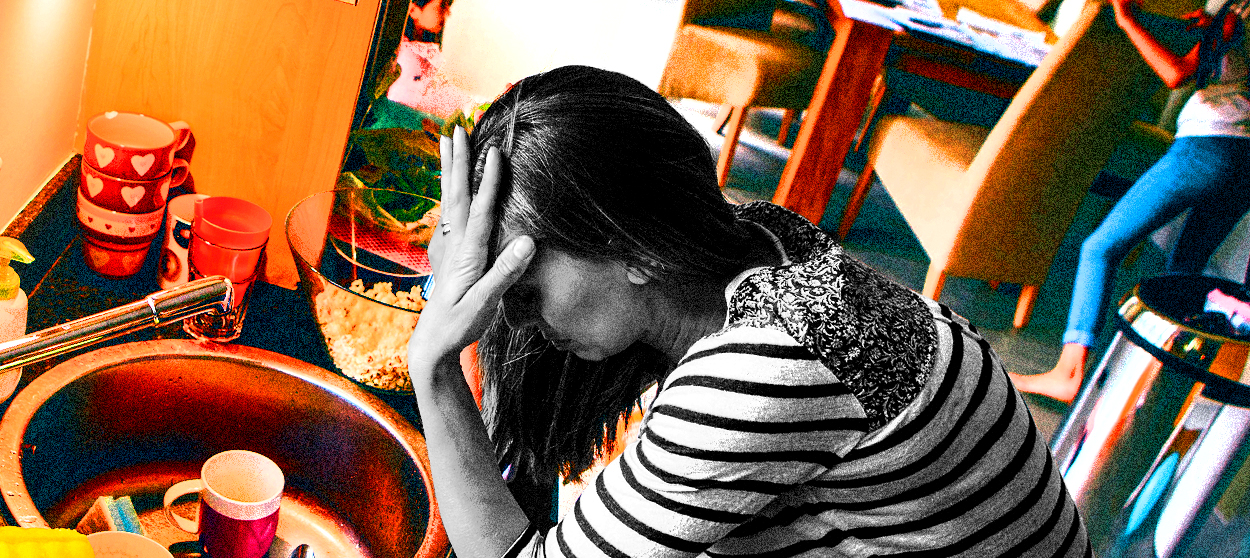Should the government really make parenting 'easy'?
This can't be the goal of family policy


A free daily email with the biggest news stories of the day – and the best features from TheWeek.com
You are now subscribed
Your newsletter sign-up was successful
Americans seem to be in a mood nowadays to throw money at families. It's an appealing prospect for me, as a mother of five young kids. I want a pony! At least, my kids would definitely like to have a pony.
Ponies are not at the center of most family-policy debates. They focus on more practical things: paid family leave, free maternity care, free day care, or just more money for families, funneled through expanded tax credits or child allowances. At the moment the day-care issue is front and center of our political debate. Matt Bruenig has gone a step further though with his "People's Policy Project," releasing a comprehensive proposal detailing all the benefits he thinks families need.
Bruenig's "Family Fun Pack" smartly draws together different ideas from the family-policy debate, advancing them all under a single rationale. Under his proposal, all expectant parents in America could look forward to "baby boxes," paid parental leave, free day care, universal pre-K, complimentary school lunches, free health care, and a monthly child allowance that would extend until their child reaches adulthood. It's a comprehensive package meant to ensure that every child has everything he might need, without parents being called upon to make Herculean sacrifices.
The Week
Escape your echo chamber. Get the facts behind the news, plus analysis from multiple perspectives.

Sign up for The Week's Free Newsletters
From our morning news briefing to a weekly Good News Newsletter, get the best of The Week delivered directly to your inbox.
From our morning news briefing to a weekly Good News Newsletter, get the best of The Week delivered directly to your inbox.
You could view this as a way to boost birth rates, which has been a topic of increasing concern in most Western countries of late. Bruenig doesn't really stress that angle, since he's more concerned with the problem of material inequality. Children typically don't earn money, and they're also a major drain on their parents' resources. The Family Fun Pack is pitched as a measure that could alleviate these inequities, making parenthood "easy and affordable" for everyone.
Let's pause right there. Parenthood should be "easy and affordable"? For the moment, put aside whether the state should take on massive new spending commitments when we're already $22 trillion in debt. Even supposing the finances were manageable, do we really want to pitch the idea that swinging into parenthood should rightly be a no-stress kind of deal?
Affordability is one thing. It's good for adults to be able to provide for their offspring. Surely no one really believes though it could be "easy" to nurture, develop, and support a human being through all of life's challenges, from conception through adulthood?
Reading charitably, we might assume that Bruenig means something more reasonable, like, "People shouldn't have to rearrange their whole lives just to meet parental obligations." That's at least not preposterous, but is it clearly right? Maybe it's appropriate for people to rearrange their lives somewhat to accommodate the entirely new human being that they've brought into the world. Is a child the sort of thing that should be conveniently slotted into an already-established life, like a new hobby or a new pet?
A free daily email with the biggest news stories of the day – and the best features from TheWeek.com
Parenthood can surely be overwhelming, but do we really want things any other way? Coming of age is a complex business in modern-day America. If a child is to succeed in life, talents must be discerned, and career paths chosen. Perseverance is essential in a bewildering labor market, while our blaring consumer culture calls for self-discipline and emotional maturity. Teachers, guidance counselors, and other community adults can certainly help kids to develop these qualities, but there's no substitute for the sustained investment of at least one particular adult. In the vast majority of cases, that will be a parent.
Overall then, it's probably a good thing that most Americans view parenthood as a major life project calling for real sacrifice and personal growth. The burdens are a little too heavy sometimes, but let's not kid ourselves. If parents give themselves permission to take it easy, the long-term consequences might be grim.
Perhaps Bruenig and others are unworried about the possibility that lavish family benefits might undercut parental investment. Won't parents always be deeply interested in their own offspring? Don't be too sure. There have been many cultures in which children were packed off to boarding schools, apprenticeships, factories, or even military service from the age of 7 or 8. High-intensive parenting is really a very recent phenomenon. Consider too that a few decades ago, demographers were mostly working on the assumption that people would always be extremely interested in having babies. Apparently not! Family patterns often turn out to be more elastic than we suppose, and even though Bruenig terms his plan a "family fun pack," it's clear enough that the proposal would actually shift the focus away from family as the expected source of support for children.
Now, I don't want to sound too unsympathetic. As a mother, I have myself reflected at times on how families always seem to get the short end of the public stick. Why, for instance, is having a baby the most expensive thing I can possibly do under my current health insurance plan? That's just not right.
It's also true that some families undoubtedly do need more help. We desperately need to update our metrics for figuring out who is truly poor and ensuring that our anti-poverty programs are reaching the people who need the most help. Presently-existing programs such as the Supplemental Nutrition Assistance Program (SNAP) or the Earned Income Tax Credit (EITC) have been fairly effective at alleviating need, but they don't always give enough assistance, particularly to families. That issue should be addressed. It would also make sense to ensure that everyone, rich and poor, has access to certain essential benefits, such as paid parental leave following the birth or adoption of a child.
Instead of committing to a thick slate of new family benefits, though, we might do better to pare down Bruenig's list of benefits, and instead invest more modest sums in the sorts of resources that make parenthood feel really rewarding. Many middle-class families are able to make ends meet, but they still richly appreciate free or low-cost public events, well-maintained park systems, and affordable family memberships to zoos and museums. Those resources can help parents to maximize the magical moments, while providing some escape on the days when caretaking starts to feel like a dead-end job. It would also be wise to explore some policy options for helping parents (usually mothers) to "lean back in" if they make professional sacrifices for the sake of their children. Perhaps we could subsidize late-career parents seeking a new degree, or offer preferential hiring for certain public-sector jobs. That would diminish the long-term cost of raising children, without displacing parents from their central role as the guardians and providers for their own kids.
Think of this as a "bread and circuses" approach to family policy. Instead of viewing the state as provider-in-chief for all children, focus on providing essentials to genuinely impoverished families, while offering pleasant perquisites to everyone else. Parenthood will remain both challenging and onerous, but the trade-offs might start to seem more favorable. It's an approach that plays to the strengths that we already have, as a nation of dedicated parents with an intense desire to enjoy our children.
If Americans are ready to start throwing money at families, I'm not anxious to dissuade them. Realistically though, it's probably best to use resources in a way that supplements parental investment rather than replacing it. Let's seek to ensure that all children get the opportunity to be a pain in some parent's neck.
Rachel Lu is a writer based in Roseville, Minnesota. Her work has appeared in many publications, including National Review, The American Conservative, America Magazine, and The Federalist. She previously worked as an academic philosopher, and is a Robert Novak Journalism Fellow.
